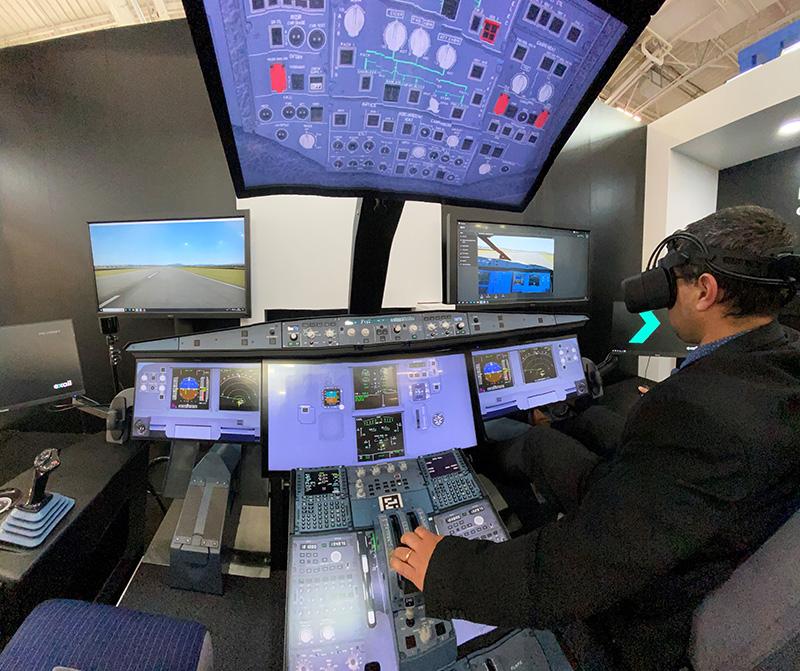
Airbus A320 FTD1 Flight Training Device with VR goggles
Credit: Mark Wagner/Aviation Images
LE BOURGET—French company Exail sees growing potential for virtual reality to be used in flight and maintenance simulators, its managing director Charles Le Bot tells ShowNews. French aviation training specialist ICARE recently selected Exail’s next-generation EASA FTD2/FNPT II simulator for the...
Subscription Required
This content requires a subscription to one of the Aviation Week Intelligence Network (AWIN) bundles.
Schedule a demo today to find out how you can access this content and similar content related to your area of the global aviation industry.
Already an AWIN subscriber? Login
Did you know? Aviation Week has won top honors multiple times in the Jesse H. Neal National Business Journalism Awards, the business-to-business media equivalent of the Pulitzer Prizes.
